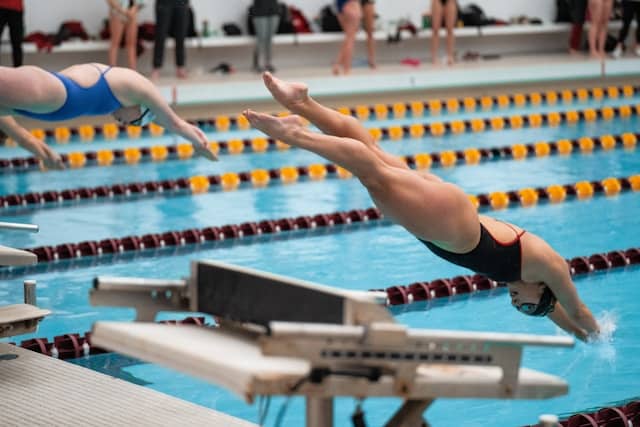How to Build a Specialized Strength and Conditioning Program for Competitive Divers?

For competitive divers, the need for strength, agility, speed and endurance is of paramount importance. Having a specialized strength and conditioning program can make the difference between winning and losing in a highly competitive environment. Creating an efficient and effective program requires understanding the unique demands of diving, the individual athlete’s needs, and the principles of exercise physiology. This means focusing not just on general fitness, but also on specific aspects like core strength, flexibility, power, and cardiovascular endurance. Let’s delve into how to create a tailored strength and conditioning program for competitive divers.
Understanding the Unique Physical Demands of Diving
Before you can create a specialized strength and conditioning program for divers, it’s essential to understand the unique physical demands this sport places on athletes. Diving requires a combination of strength, flexibility, power, and endurance. Let’s break down these requirements.
In the same genre : What Techniques Can Improve Mental Acuity for Chess Players in High-Stakes Tournaments?
Strength
Strength, in the context of diving, is not about raw power or the ability to lift heavy weights. Instead, it’s about functional strength, the kind of strength needed to control your body in the air and in the water. This includes core strength, upper body strength, and lower body strength.
Flexibility
Divers need to have a high level of flexibility. This flexibility is needed to achieve the various positions required in the air and to enter the water with minimal splash. Flexibility also helps reduce the risk of injury.
Also read : What Are the Long-Term Effects of Concussion Protocols on Rugby Player Health?
Power
Power is the ability to generate force quickly. In diving, it is required for takeoff and to create height in the air. Power is directly related to speed, and the ability to generate speed quickly is crucial in diving.
Endurance
Endurance in diving is not about long-distance stamina but the ability to maintain high levels of performance throughout a competition. A diver may have to perform multiple dives in a competition, so they need to have the endurance to maintain their performance level.
Developing a Customized Strength and Conditioning Program
Creating a specialized strength and conditioning program for competitive divers involves identifying the diver’s strengths and weaknesses and then designing a program that addresses these areas while also improving overall fitness. Here is a step-by-step guide.
Step 1: Assessment
The first step in creating a program is to assess the diver’s current fitness level. This includes testing their strength, flexibility, power, and endurance. This can be done through a series of tests like the sit-and-reach test for flexibility, the vertical jump test for power, the push-up test for upper body strength, and the plank test for core strength.
Step 2: Goal Setting
Once you have assessed the diver’s fitness level, the next step is to set goals. These goals should be specific, measurable, achievable, relevant, and time-bound (SMART). The goals should be based on the diver’s weaknesses and the physical demands of diving.
Step 3: Exercise Selection
Choosing the right exercises is crucial in a strength and conditioning program. The exercises chosen should target the areas identified in the assessment and goal setting stages. For strength, this might include exercises like push-ups, pull-ups, and squats. For power, plyometric exercises like box jumps and depth jumps could be included. For flexibility, exercises like the hamstring stretch and the butterfly stretch could be used. And for endurance, interval training could be a good option.
Implementing the Program
Once the program has been created, the next step is to implement it. The diver should start slowly and gradually increase the intensity and complexity of the exercises. It’s also important to monitor progress and make adjustments as needed. The program should be seen as a living document, something that will evolve and change as the diver’s fitness level improves and as their needs change.
The Importance of Recovery
Another crucial aspect of a strength and conditioning program is recovery. This includes rest, nutrition, and hydration. Without adequate recovery, the body can’t adapt to the training loads, which can lead to fatigue and injury. Therefore, it’s important to incorporate rest days into the program and to ensure the diver is getting enough nutrients and staying properly hydrated.
Monitoring Progress
The final aspect of a strength and conditioning program is monitoring progress. This involves re-testing the diver’s fitness levels at regular intervals and comparing these results to the initial assessment. This will show whether the program is working and where adjustments need to be made. It’s also a good way to keep the diver motivated, as they can see the improvements they have made.
In summary, building a specialized strength and conditioning program for competitive divers involves understanding the physical demands of the sport, assessing the diver’s fitness level, setting goals, selecting exercises, implementing the program, ensuring adequate recovery, and monitoring progress. With a well-designed program, a diver can significantly improve their performance and reduce the risk of injury.
Strengthening Nutrition and Mental Health Aspects
While physical fitness is a significant component of a diver’s performance, a comprehensive strength and conditioning program should also address nutrition and mental health.
Nutrition
Sound nutrition is the key to optimal performance. A diver’s diet should be high in protein to aid muscle recovery and growth, rich in complex carbohydrates for sustained energy, and contain adequate amounts of healthy fats, which play a vital role in hormonal balance and inflammation control.
In addition, divers should drink plenty of fluids to stay hydrated and replenish the electrolytes lost during training and competition. Nutrient timing can also be an effective strategy, meaning athletes should consume certain foods and beverages at specific times to maximize performance and recovery.
Furthermore, a diver may need to consult a sports nutritionist or dietitian who can provide personalized advice based on the diver’s needs, preferences, and goals.
Mental Health
Diving is a sport that demands mental toughness. It requires focus, concentration, and the ability to handle pressure. That’s why mental health is an often overlooked but vital aspect of a diver’s training regimen. Techniques like mindfulness, visualization, and relaxation exercises can help divers manage stress and improve their concentration.
Moreover, divers should have access to mental health resources and professionals who can provide support and guidance. It’s important to remember that mental health should be prioritized just as much as physical health.
Conclusion: The Comprehensive Approach to Building a Specialized Strength and Conditioning Program
In conclusion, developing a specialized strength and conditioning program for competitive divers is a multifaceted task that requires a deep understanding of the sport’s unique demands. It entails assessing the diver’s fitness level, setting realistic and measurable goals, selecting effective exercises, and implementing the program with care.
In addition, it’s crucial to monitor progress regularly and make necessary adjustments along the way. Recovery, both physical and mental, is another vital aspect of the program, with proper rest, nutrition, and mental health strategies being central components.
Remember, a comprehensive strength and conditioning program is not just about enhancing performance, but also about keeping the diver healthy, motivated, and resilient. With this holistic approach, divers can reach their full potential and achieve their highest level of performance.
The road to success in competitive diving is paved with dedication, hard work, and a well-designed, specialized strength and conditioning program. It’s a journey that requires not only physical strength, power, flexibility, and endurance, but also sound nutrition and strong mental health. It’s about building the complete athlete, one who is prepared for every challenge that comes their way.
